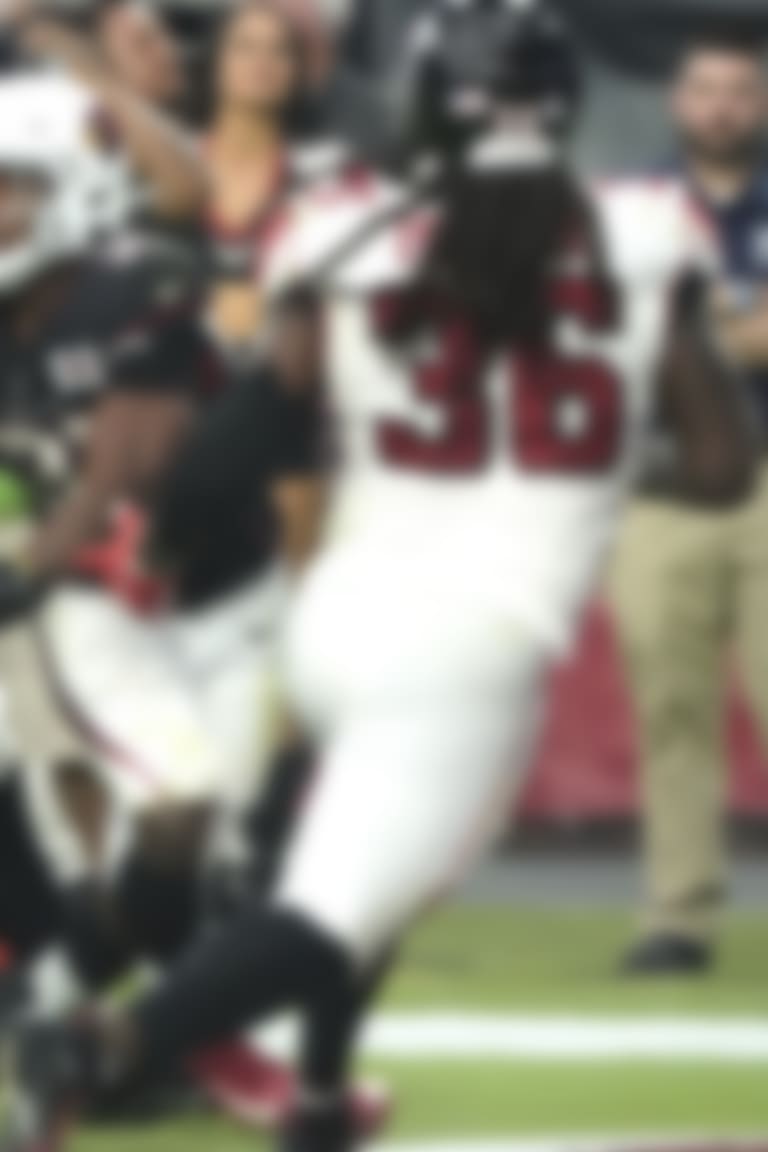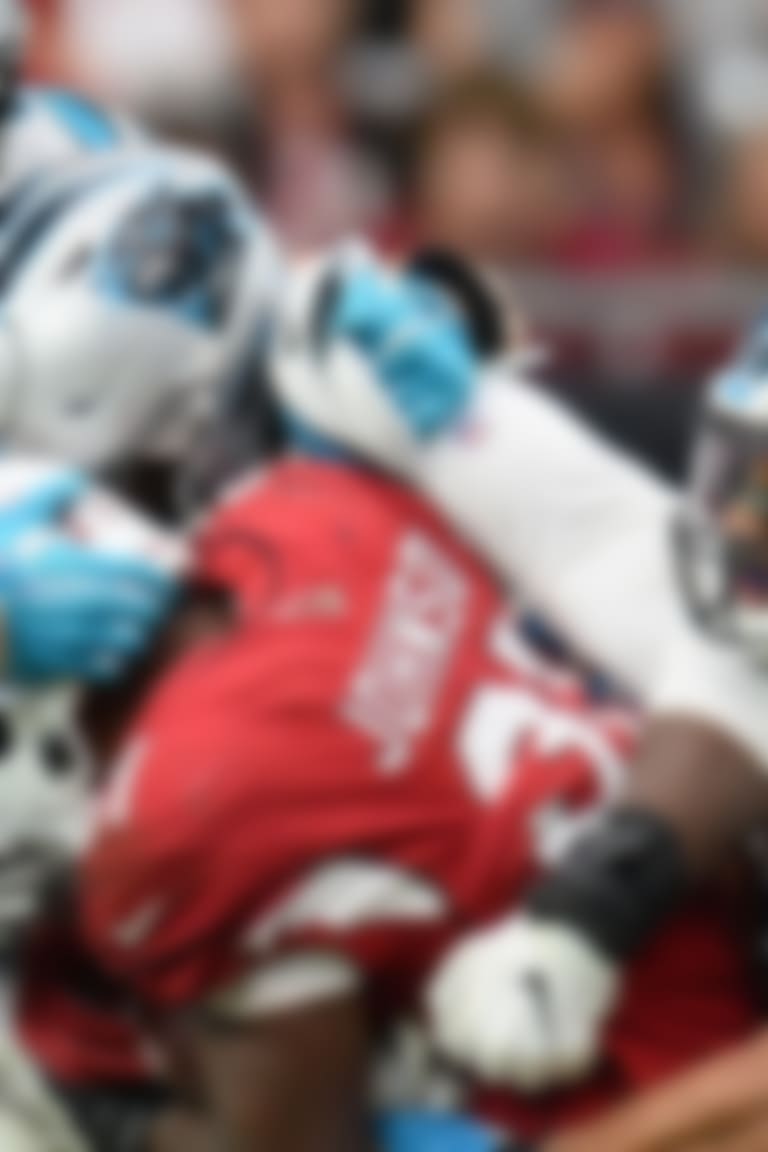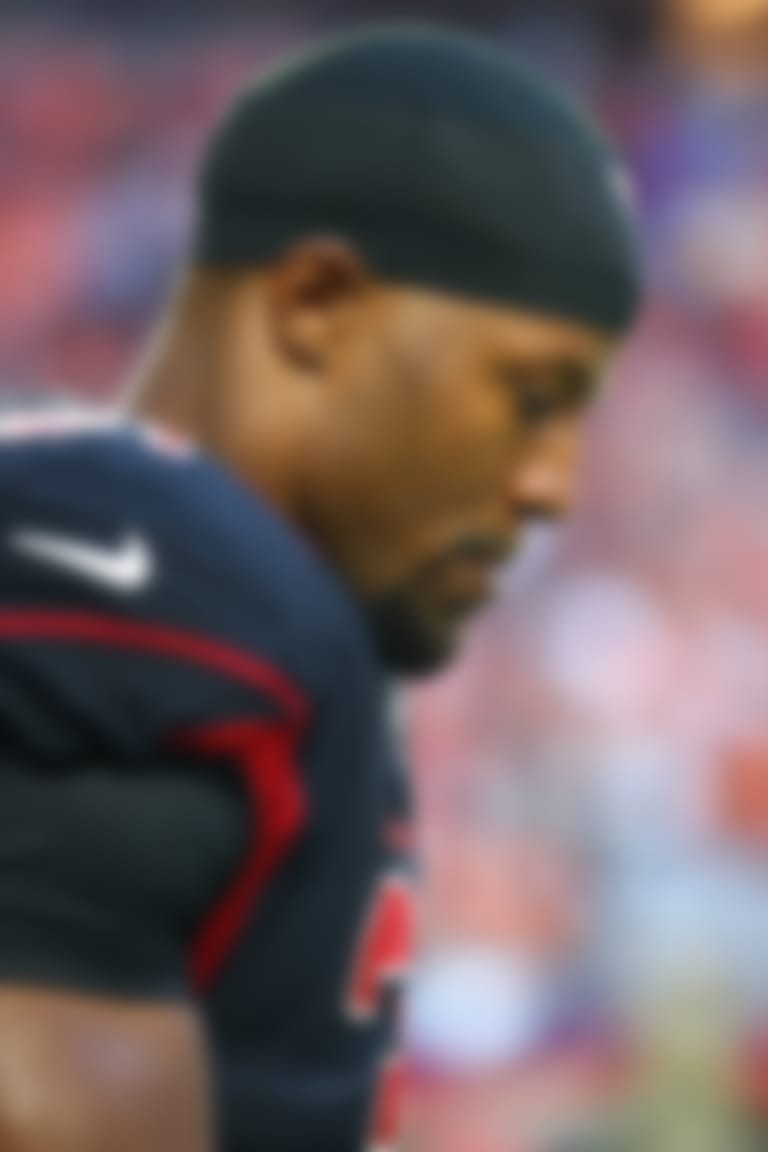By Jeffri Chadiha | August 4, 2020
In just three years, David Johnson has gone from budding superstar to blockbuster-trade afterthought. But it's familiar territory for the Texans' new running back, who's out to prove his latest doubters wrong.
David Johnson felt the bright Florida sunshine splash across his face as he nestled his toes into the soft sand. The waves of the Atlantic Ocean rippled off in the distance while tourists scouted the perfect places to work on their tans. Johnson had come to Key Biscayne to talk with NFL Players Association leaders about the key issues involved in the league's new collective bargaining agreement proposal. He instead received an all-too familiar lesson in how quickly life can change in the NFL.
Johnson's cell phone chimed as he strolled across the beach on that afternoon in mid-March. He heard the voice of his agent, Jonathan Perzley, who delivered the news immediately. The Arizona Cardinals had traded the running back to Houston as part of a package that included Texans All-Pro wide receiver DeAndre Hopkins. Just like that, Johnson was heading to a new home, leaving behind the only franchise he'd ever known, one that had given him a three-year, $39 million contract extension just two years earlier.
The more his agent talked, the more delighted Johnson became. He was eager for a fresh start, a new opportunity to shine with a franchise that is as intriguing as any in the league now that training camps have opened. That feeling intensified when Texans head coach Bill O'Brien called a few minutes later.
"The thing I liked was that he was really excited to have me," Johnson said during a recent interview. "As I think about it now, the thing I have to do is not listen to anything outside the organization. All I have to do is just grind."
That noise Johnson alluded to wasn't hard to miss. As thrilled as he was about beginning a new chapter in his career, he quickly discovered that the consensus was Houston got the short end of the deal. Some of that public scorn can be traced to Hopkins, a popular Texans player who is arguably the best receiver in the league. The media narrative was that Houston's haul -- which included a second-round pick and a swap of fourth-round selections -- wasn't nearly as impressive, especially since Johnson has struggled over the past three years and still has just over $20 million owed to him on his current contract.
The numbers alone don't paint a great picture. Johnson flirted with the 1,000/1,000 club (rushing/receiving yards) in 2016, as he generated 2,118 yards from scrimmage and scored 20 total touchdowns -- both league highs -- while earning first-time All-Pro status. He's accumulated just 2,191 yards and 16 touchdowns combined in the three seasons since that breakout campaign. Last year, Johnson finished with 345 rushing yards and wasn't even seeing the field by season's end.
That precipitous drop in production haunts Johnson. So does the notion that he's brittle ... or a one-hit wonder ... or a 28-year-old money pit whose best years might be behind him. For Johnson, the doubts hovering around him have an eerily familiar ring to them. They're basically the same kinds of questions he's been battling throughout his entire playing career. It's just that now he's hungrier than ever to show people that the real David Johnson is the guy who dominated four years ago.
"The journey I've had to take (to success) has never been the easy route," Johnson said. "From (barely being recruited in) high school to getting to the league, it's all been hard. But in having to always take that difficult road, I've also learned to accept it and embrace it. It ultimately makes you stronger."
"To be benched and be third-string -- that was the lowest. I really had to lean on my family and reading the Bible after that day. That and knowing deep down that I still had the ability to play in this league." DAVID JOHNSON
The Texans share a similarly optimistic view of what Johnson can do with this franchise.
"We studied David when he was coming out of college and during his career in Arizona," O'Brien said. "Everybody has to go through their injuries and coaching changes. But you're also talking about a guy who was Arizona's Walter Payton Man of the Year. (Johnson received that honor in 2019 for his community service efforts.) He's tough and smart and a three-down back who can be used with (fellow Texans running back) Duke Johnson."
When asked about the contractual obligations, O'Brien added that "the contract is what it is. There is definitely money that he'll be paid, but when we look at what David adds, he's worth it."
The most appealing aspect of the trade for Johnson is that his versatility will be featured once again. That component of his game disappeared for a variety of reasons in Arizona -- the Cardinals ran him more between the tackles in 2018 and then fell in love with midseason trade acquisition Kenyan Drake last year -- but it should be an effective complement to the dynamic abilities of Pro Bowl quarterback Deshaun Watson.
"I'll be a runner, a receiver out of the backfield and I could even be utilized out of the slot, as well," Johnson said. "Just talking to the coaches during this offseason, I feel like that's the way they're thinking. I'll be utilized in every way possible."















